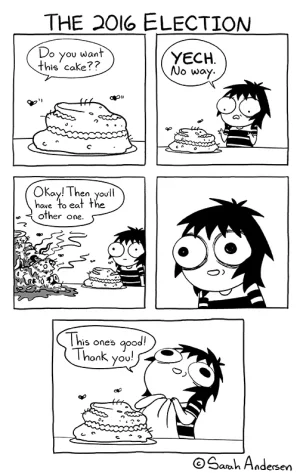I would not vote The Donald in for so much as Dog Catcher...and will continue to believe he has no business in the chair....
His thinking he is above our constitutional laws and hiding under the 1st Amendment is sickening.
His lack of displaying his self-respect and blatant disrespect for everyone is clear for all to see. He alone can not fix our government. How is he getting our country back, by giving it away to Russia? Has he a plan to sell us all out? I personally question his allegiance to America...let alone is very sanity! Any other American would have to stand quarter and answer for saying such outlandish things as he................
"Shouting fire in a crowded theater" is a popular
metaphor for speech or actions made for the principal purpose of creating unnecessary panic."
Though the image often represents illegal speech, "shouting fire in a crowded theater" refers to an outdated legal standard. At one point, the law criminalized such speech, which created a "clear and present danger." But since 1969, for speech to break the law, it can’t merely lead others to dangerous situations.
It must directly encourage others to commit specific criminal actions of their own.
The idea of falsely shouting "fire" in a crowded theater arose from the Supreme Court’s 1919 decision in the case Schenck v. United States. The Court ruled unanimously that the First Amendment, though it protects freedom of expression, does not protect dangerous speech. In the decision, Oliver Wendell Holmes wrote that no free speech safeguard would cover someone "falsely shouting fire in a theater and causing a panic." The case in question did not involve fires, theaters or general panic. It instead concerned a man’s conviction for protesting the First World War’s military draft. The man, Charles Schenck, had printed 15,000 fliers that encouraged readers to resist conscription.
The Espionage Act of 1917 and the Sedition Act of 1918 criminalized such an offense, said prosecutors.
Schenck argued that the Constitution allowed his expression, but the Court disagreed. According to their ruling, Schnenck’s fliers created a clear and present danger — a clear and present danger to the government’s recruiting efforts. He hadn’t endangered life, as falsely shouting "fire" in a crowded theater would have, but he may as well have.
This "clear and present danger" standard stood for half a century.
Further rulings even expanded it, criminalizing additional speech.
But the Supreme Court then heard a case involving a new example of questionable speech, one that modern sensibilities might find more controversial than war protests.
Charles Brandenburg, a Ku Klux Klan leader, had spoken to group members at a televised Ohio rally. He’d used inflammatory language and racial slurs. He’d called for "revengeance," which Ohio prosecutors interpreted as a call to violence. This meant, said the prosecutors, that Charles Brandenburg had broken the law.
A statute, which the state had enacted the same year as the Schenck decision, criminalized the advocacy of crime or violence. The victims of any possible crime this speech incited would face even clearer danger than patrons fleeing a crowded theater.
Yet Brandenburg claimed the First Amendment protected his speech. His appeal reached the Supreme Court, and the Court agreed with him, in contrast with the earlier Schenck decision. Advocacy, even when it encourages law-breaking, helps the marketplace of ideas, ruled the Court. Had Brandenburg instructed followers to commit a specific crime, he’d have committed a number of offenses himself.
But the First Amendment protects speech that merely advocates general, indefinite illegal action.
With that ruling, the Court overturned the Schenck decision that had introduced "shouting fire in a crowded theater." No longer was "clear and present danger" a sufficient standard for criminalizing speech. To break the law, speech now had to incite "imminent lawless action."
So if a court can prove that you incite imminent lawlessness by falsely shouting "fire" in a crowded theater, it can convict you. If you incite an unlawful riot, your speech is "brigaded" with illegal action, and you will have broken the law.
.........................................
Am I reading it wrong??? Please do point out where I may be misinterpreting or misunderstanding the writings??
"First Amendment - Religion and Expression.
Congress shall make no law respecting an establishment of religion, or prohibiting the free exercise thereof; or abridging the freedom of speech, or of the press; or the
right of the people peaceably to assemble, and to petition the Government for a redress of grievances."
First Amendment - U.S. Constitution
Shall we petition our government with our grievances???...Just plain frustrated.


